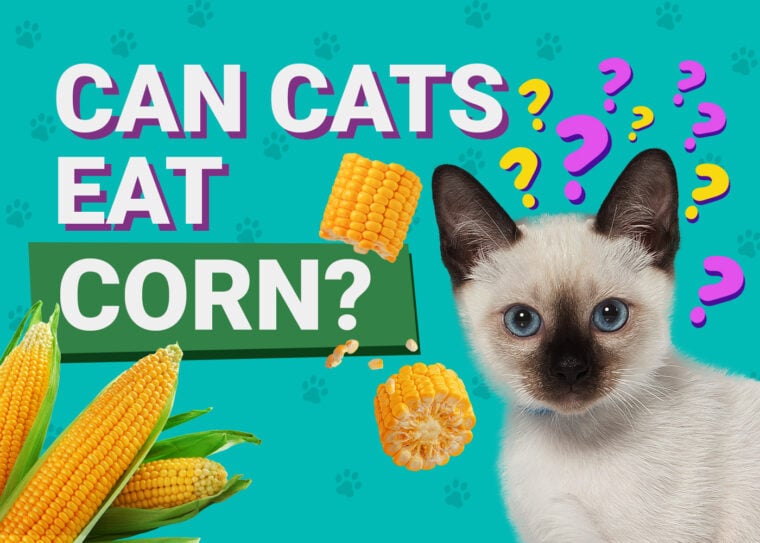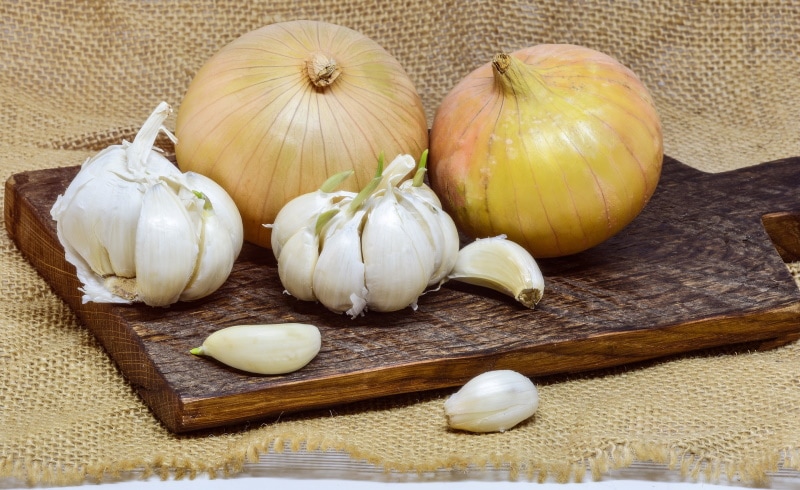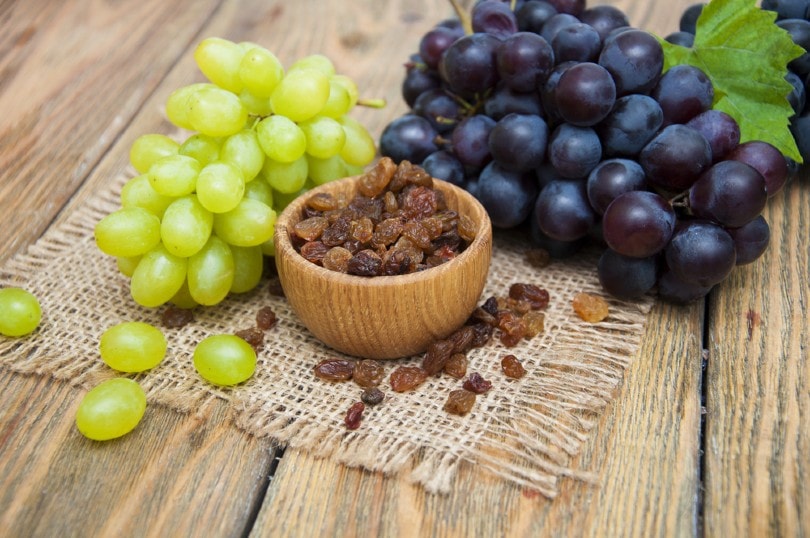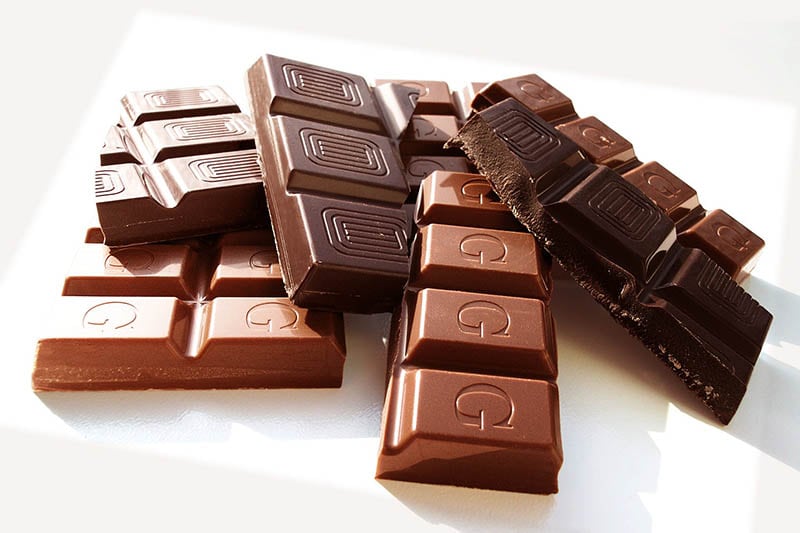
Corn is a healthy snack for people, providing insoluble fiber that provides energy but doesn’t cause a spike in blood sugar levels. However, just because corn is good for people doesn’t mean it is good for cats. While cats can safely eat corn, our feline companions are obligate carnivores which means that their bodies are designed to digest and process meat. Meat should form the basis of their diets.
Read on for more information about cats and corn, as well as some human foods that you should absolutely avoid giving to your kitties.
Cats and Corn
If you’ve ever checked the ingredients in your cat’s dry or wet food, there is a good chance that you have seen corn or cornmeal listed as one of those ingredients. That’s because corn is relatively inexpensive and does contain important essential fatty acids, energy, fiber, and protein. This corn is processed so that it can be easily digested by cats.
Corn in commercial cat foods is safe for cats to eat in that it isn’t toxic and it provides nutrition.
If your cat has had a sneaky mouthful of sweetcorn from your plate or tried a mouthful of corn on the cob, there should be nothing to worry about, unless there are other additives that might cause harm.
Corn is slightly crunchy, and while cats are not necessarily attracted to sweet foods in the same way humans are, some cats do enjoy munching on the occasional veggie.
However, there is no benefit to feeding corn to cats as a supplement to their cat food. This “fresh” corn will fill your cat up without providing benefits. And, because your cat will be full, they won’t want to eat other ingredients that might offer more nutritional benefits. Therefore, cat owners are advised against feeding corn to their cats as a treat or as a supplement to their existing food.

Top 5 Foods to Avoid Giving Cats
Generally, cats should be eating meat and animal-based foods. They are obligate carnivores, after all, and in the wild, their diet would consist entirely of small animals and potentially some insects. The only non-meat food they would eat would be the contents of their prey’s stomachs and this would account to a minuscule amount of their diet.
Cats do not have the same digestive system or biological system as humans, either, which means that there are some foods that cats should absolutely not eat. Some may be toxic while others might have dangerously high levels of salt, for example. Below are five foods to avoid feeding your cats.
1. Onion and Garlic

Onion and garlic are members of the allium family. Other members of the same family include chives and leeks. Cats and dogs should not be given to members of this family at all. These foods can damage and destroy red blood cells which prevent the body from being able to carry oxygen to vital organs.
2. Grapes and Raisins

Scientists aren’t entirely sure why grapes are bad for cats (it may have to do with tartaric acid), but it has been shown that even small amounts of grapes can lead to serious kidney problems and potentially even kidney failure. Vomiting and hyperactivity are two of the early signs of toxicity in cats, so if you believe your cat may have gotten its paws on grapes and you notice these symptoms, contact a vet. As they are just dried grapes, raisins are similarly dangerous to cats.
3. Raw Meat

Raw meat can harbor bacteria like Salmonella, and this can be potentially very dangerous to cats, although they would obviously eat raw meat in the wild and cats tend to be more resilient to these bacteria than humans are. However, any risk should be avoided, so do make sure meat is cooked before serving it to your cat. Raw eggs carry a similar risk, so avoid giving these to your cat, too. Cooked eggs can be a beneficial part of a cat’s diet, though.
4. Chocolate and Caffeine

Chocolate contains methylxanthines and these are toxic to cats. They can cause diarrhea and an increase in body temperature and heart rate, as well as vomiting and even seizures. These same potentially dangerous compounds are also found in caffeine and caffeinated beverages so make sure your cat doesn’t drink from your coffee or slurp your energy drinks.
5. Milk

Cats are often depicted in movies, cartoons, and on TV as loving milk and eagerly lapping it up. But the majority of cats are lactose intolerant and even more struggle to properly digest the lactose found in dairy milk and other dairy products. Consuming it can lead to gastrointestinal complaints such as vomiting, diarrhea, and gas. However, some cats can tolerate milk and if yours is one of them, you should be able to safely let your feline friend have a small amount of milk from time to time.
Knowing exactly what your feline companion can and cannot eat will help you become the best pet parent. Recognizing that not all cat bowls are equal is also key! The Hepper NomNom Cat Bowl sets itself apart from traditional options by catering to the specific needs of cats. The innovative design offers whisker relief via shallow dishes and promotes digestion with a slight bowl elevation. Find out if the Hepper NomNom is right for your cat by clicking here.
At Pet Keen, we’ve admired Hepper for many years and decided to take a controlling ownership interest so that we could benefit from the outstanding designs of this cool cat company!
Conclusion
In the wild, cats survive on a diet that consists of meat and animal products, including parts of the animal like claws and feet. They may also eat eggs and some insects, but cats rarely, if ever, eat fruit, vegetables, or plant-based products. Corn is used in cat food and is processed to be digestible and provide valuable nutrients. However, it is not recommended to feed extra corn to your cat. As such, a cat’s diet should consist primarily of meat.
So, while fresh corn isn’t toxic to cats, it also isn’t considered a beneficial food to give to our feline pets. Treats like cooked chicken are considered more beneficial.
- You might also like: Can Cats Eat Cornbread? Vet Reviewed Facts & FAQ
Featured Image Credit: JumpStory









